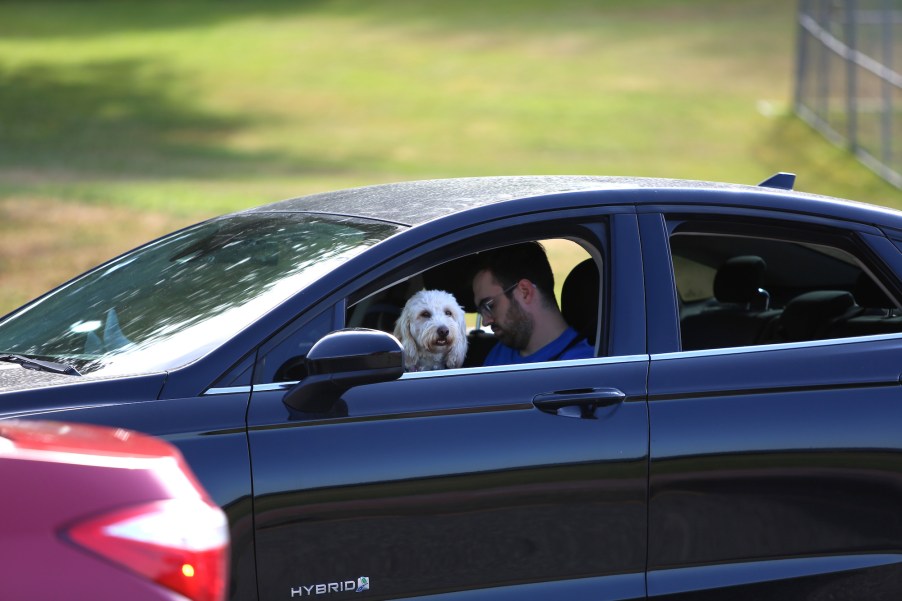
How to Get Your Dog to Stay in the Back Seat
You’re driving down the highway or navigating busy city traffic. Suddenly, a dog appears in your lap or tries to force its way under your arm. Distracted driving is a leading cause of car accidents and deaths. And as much as we treasure our furry friends’ company, unrestrained pets are often a dangerous driving distraction.
The dangers of a dog in the front seat

A dog climbing into the front seat can divert your attention from the road. Fido might bump into the controls or get between your feet and the pedals. In a worst-case scenario, your pooch could even stick its head through the steering wheel.
An unrestrained dog in the front seat potentially endangers other drivers, bicyclists, pedestrians, and even innocent bystanders. According to the National Highway Traffic Safety Administration, 3,142 people were killed by distracted driving in 2019 alone. That’s 9% of all fatal crashes. Don’t let your pet contribute to that number.
So, how do you get a dog to stay in the back seat? Here are a few methods.
Use a barrier, harness, or carrier to keep your pet safely restrained
The back seat is safer for your pup than riding in front. As much as we’d like our four-legged friends to ride shotgun with us, it’s not the safest place for a dog in case of an accident. A barrier will keep Fluffy in the back where he — and you and everyone else — will be safer. Mesh curtains prevent small pets from sneaking up to the front, while metal grills prevent even the burliest dogs from doing the same.
Trusted Choice recommends using a harness and a seatbelt for your dog. This will keep your pet from sliding around on the seat and potentially breaking a leg. It will also prevent your pup from becoming a deadly projectile in case of an accident. In addition, you’ll want to buckle Sparky up because airbags pose a serious hazard to dogs in the event of even a minor crash.
If you want to go a step further, use a specialized pet seat belt or car seat to keep your dog safely restrained.
Other options to keep your pup secure include a pet carrier for smaller breeds or a kennel for medium to large dogs. The ultimate safety option is a crash-test-certified crate that offers crumple-zone protection and the doggie equivalent of airbags to cushion the shock of a collision. Just make sure the carrier or crate is safely buckled in. Otherwise, it could become an even deadlier projectile than your dog alone.
Train your dog to stay in the back seat
Dogs of all sizes and breeds benefit from basic obedience training. One of the most important commands for them to learn is how to stay where and when they’re told.
Another key command is learning to respect invisible barriers. If you train your dog that there’s an invisible barrier between the front and back seats, he won’t even try crossing it. Either one of these essential commands will keep a trained dog in the back seat, where he’s safer. They could save your pet’s life outside the car, too, by preventing him from running into a busy street.
Training also improves the bond between you and your dog. Spending a few minutes a day training to ride safely in the car will result in a calmer, happier pup, a less stressful driving experience, and improved safety for everyone.


